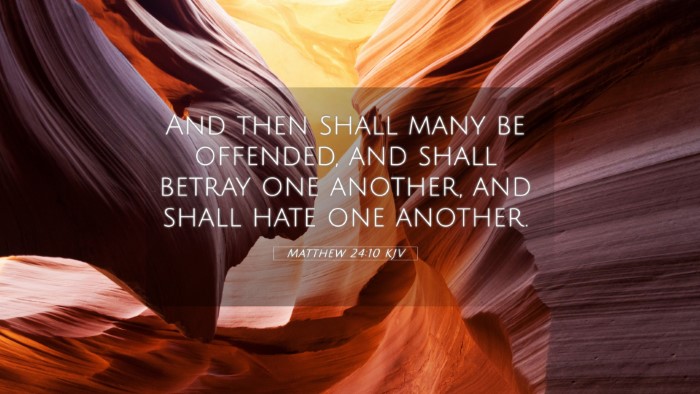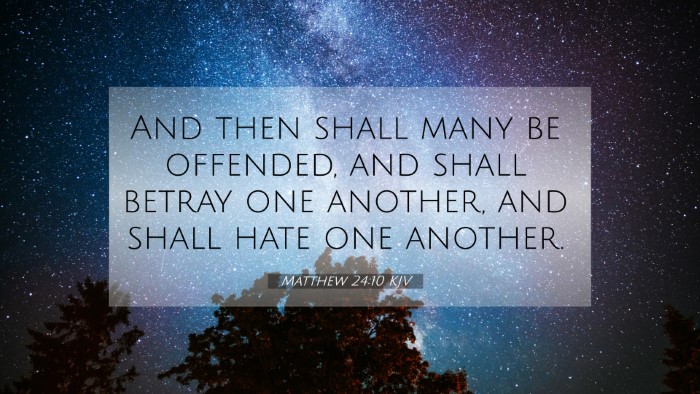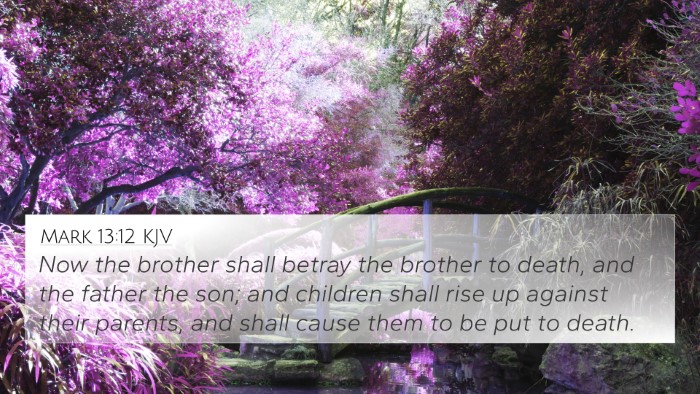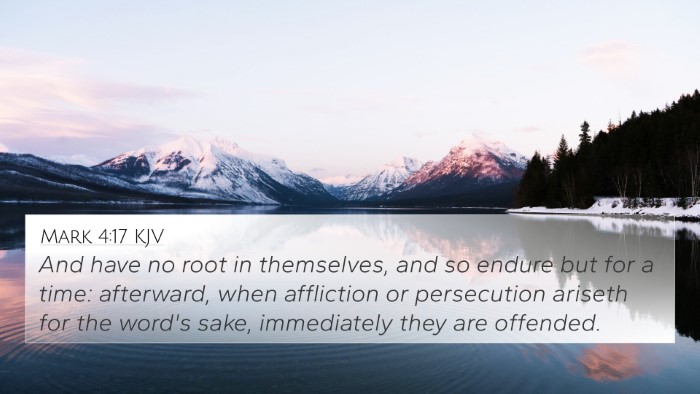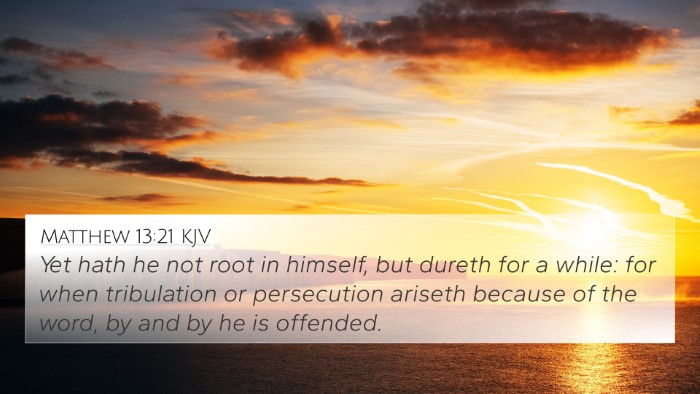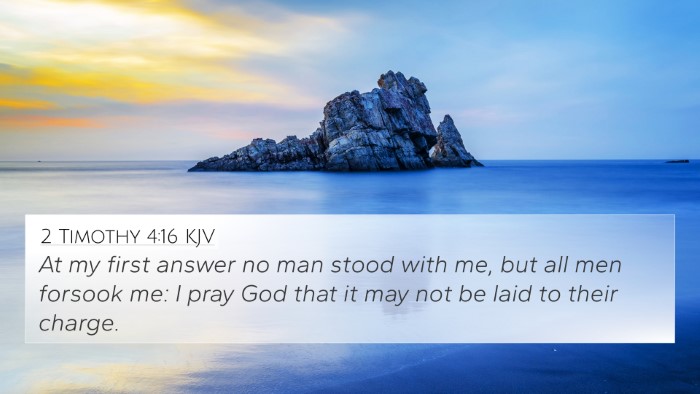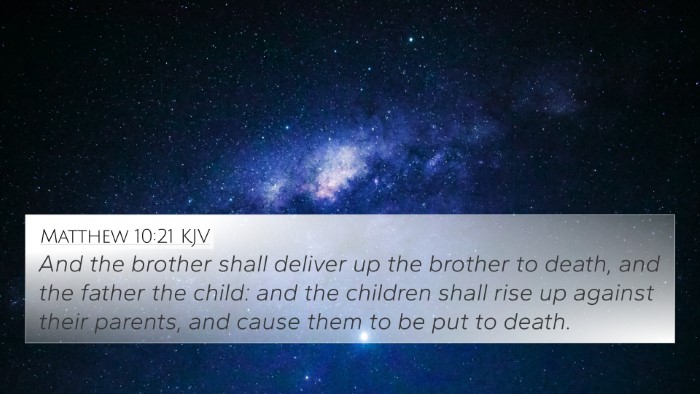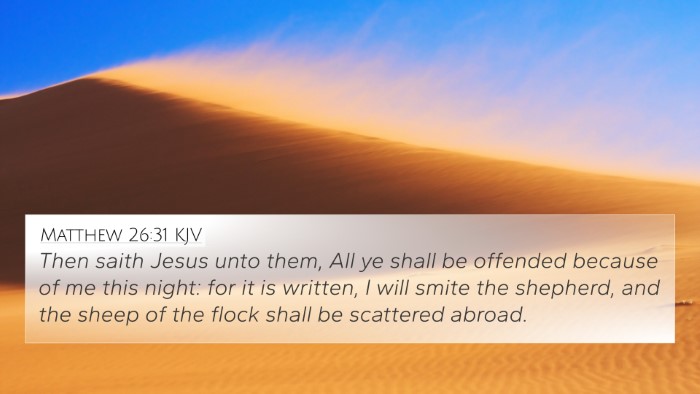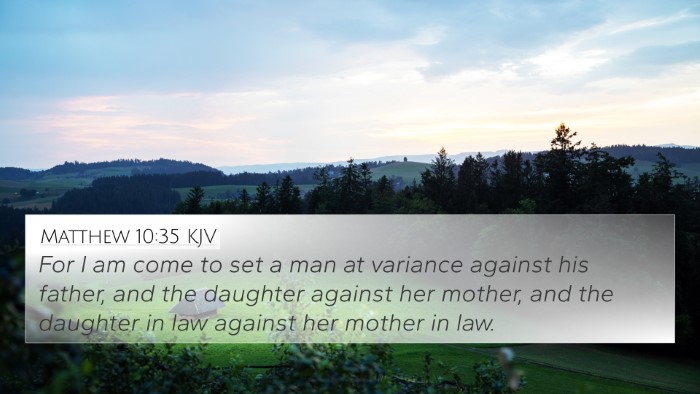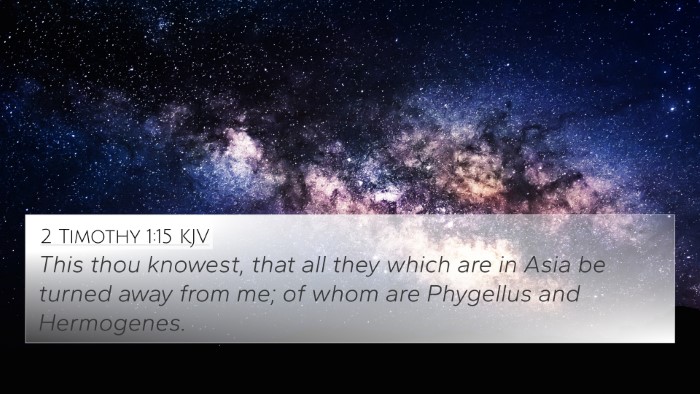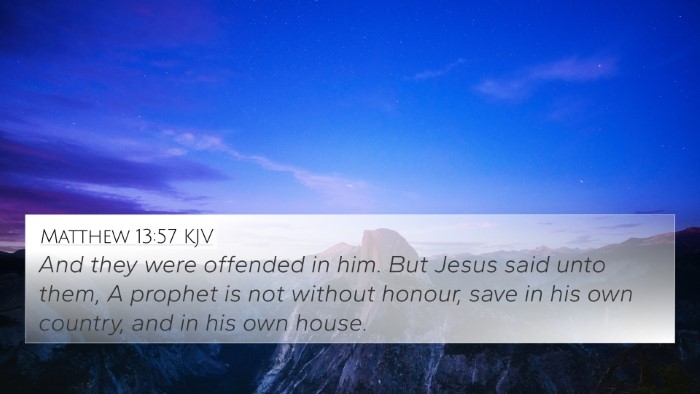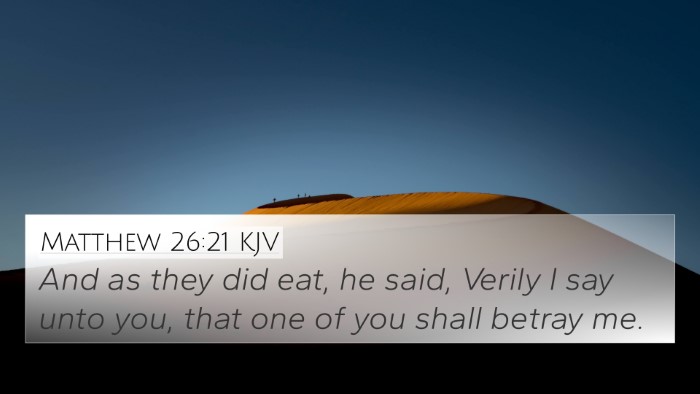Understanding Matthew 24:10
Matthew 24:10 states, "And then shall many be offended, and shall betray one another, and shall hate one another." This verse is part of Jesus’ discourse on the signs of the end times, and it reveals the deterioration of human relationships as the world approaches a climactic close to history.
Summary and Interpretation
The verse emphasizes three significant themes: offense, betrayal, and hatred.
- Offense: Many will become easily offended, indicating a prevailing spirit of discontent and disheartenment.
- Betrayal: There will be a betrayal among individuals, suggesting a breakdown of trust.
- Hatred: The rise in hatred of one another signifies deep moral decay.
Insights from Public Domain Commentaries
Matthew Henry
Matthew Henry suggests that this verse reflects the condition of the disciples before the world’s end, where their faith will be tested. He points out that the increase of offenses will lead to a multitude turning on each other, driven by fear and panic.
Albert Barnes
Albert Barnes remarks on the concept of being ‘offended’ as a crucial element, often linked to the hardships and tribulations believers will face. He elucidates how this offense can lead to actions of betrayal and an overall increase in hatred, creating an atmosphere of distrust and fear.
Adam Clarke
Adam Clarke notes that as love waxes cold and offenses rise, the susceptibility to betrayals functions as a grim indicator of societal decay. He underscores the spiritual and emotional implications of these actions, asserting that the love of many shall be replaced by coldness and hostility.
Related Bible Verse Cross-References
This verse connects with several other scriptures that explore similar themes of betrayal, offense, and societal decay. Notable cross-references include:
- Matthew 10:21: "And the brother shall deliver up the brother to death, and the father the child: and the children shall rise up against their parents, and cause them to be put to death."
- Mark 13:12: "Now the brother shall betray the brother to death, and the father the son; and children shall rise up against their parents, and shall cause them to be put to death."
- Luke 21:16: "And ye shall be betrayed both by parents, and brethren, and kinsfolk, and friends; and some of you shall they cause to be put to death."
- Revelation 12:12: "Therefore rejoice, ye heavens, and ye that dwell in them. Woe to the inhabiters of the earth and of the sea! For the devil is come down unto you, having great wrath, because he knoweth that he hath but a short time."
- 2 Timothy 3:1-4: "This know also, that in the last days perilous times shall come. For men shall be lovers of their own selves, covetous, boasters, proud, blasphemers, disobedient to parents, unthankful, unholy, without natural affection, trucebreakers, false accusers, incontinent, fierce, despisers of those that are good."
- Matthew 24:12: "And because iniquity shall abound, the love of many shall wax cold."
- John 15:18-19: "If the world hate you, ye know that it hated me before it hated you. If ye were of the world, the world would love his own: but because ye are not of the world, but I have chosen you out of the world, therefore the world hateth you."
Thematic Connections to Other Scriptures
The themes of offense, betrayal, and hatred are recurrent throughout the Bible, relating to our understanding of human nature and the spiritual challenges ahead. These connections consider how the Old Testament prophets forewarned such conditions, and also how apostolic teachings later reinforced them.
Identifying Connections Between Old and New Testament
The interconnectedness of these themes spans both testaments. For example, the prophetic writings of Jeremiah and Ezekiel often address betrayal and the hardness of heart, paralleling the warnings found in the Gospels.
Tools for Bible Cross-Referencing
Engaging with Bible cross-references is essential for deeper understanding. You can utilize tools such as:
- Bible concordance
- Bible cross-reference guide
- Cross-reference Bible study tools
- Bible reference resources
Conclusion
Matthew 24:10 is a powerful reminder of the struggles that will encompass humanity as the end approaches. Through the insights gleaned from commentaries and cross-references, we are better equipped to comprehend the seriousness of these themes and their implications on our faith and community.

